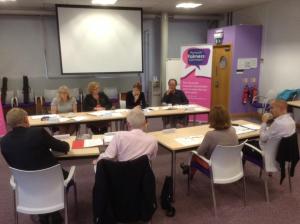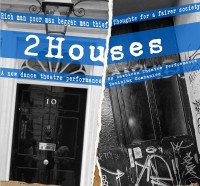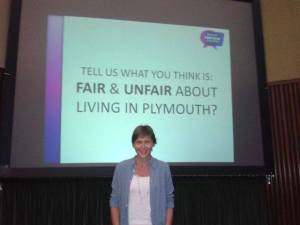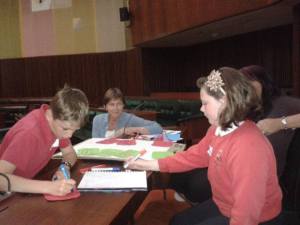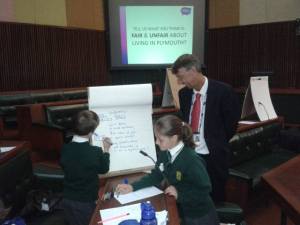Blog Archives
Select Committee; Local Procurement
In order to help boost the local economy in Plymouth, the Fairness Commission held a select committee event on Local Procurement. They invited expert witnesses from the industry to discuss the issues faced in the area.
The commissioners welcomed Steve Scott – CSP Coaching LLP, Paveway Performance and Plymouth Chamber of Commerce, Richard Thomas – Web Consultant, Debbie Southwould – Mitchell Architects and Craig McArdle – Head of Joint Strategic Commissioning at Plymouth City Council.
One of the main topics of discussion focused on Sell2Plymouth, a website dedicated to procurement in the city, connecting local buyers and sellers together. It was argued that, although it is serving its purpose to an extent, there is room for improvement to the software which can only really be sorted to its full effect if full ownership of the software can be achieved.
It was also stated how local procurement is more difficult because it means that businesses are likely to have to shop around. Bigger companies more often have a number of services under one roof, therefore less effort is required from the buyer. One expert described it as ‘a question of hearts and minds’. You know it is good to buy local, and probably even want to buy local, but is it providing your business with something better than what can be got with less money and less effort?
It was decided that in order for local procurement in Plymouth to be a success, everyone needs to be behind it. Otherwise it will be an uphill struggle for all of those who do support buying locally. It was also stated that it is not just up to the public sector to buy local, it should also be the responsibility of the private sector too.
Thank you to our commissioners and the expert witnesses who joined us.
Notes from the Commissioners: Jo Higson, Devon and Cornwall Refugee Support
In our last Commission meeting we were discussing the issues that had been raised in the call for evidence and picking out the themes that came across and talking about where issues were joined or had impact on another issue. We came down to talking about kindness and what a difference it would make if everyone was just kind to the people they met; if neighbours were kind to one another, if we were all kind to the people we came across in the city centre or on the roads.
It reminded me of something that someone told me about an encounter they had that had made a difference to them. I will try and remember it as best I can as I didn’t record it when I was told the story, but the message really stuck with me:
“I was going through what was probably the most stressful time of my life – what do I mean probably? – I mean it was definitely the most stressful time of my life. I remember one day walking round in the city centre in a complete fug of unhappiness, close to tears and wondering whether it was really worth going on.
“A woman in front of me held the door open for me, despite the fact that it was awkward for her, and smiled and made eye contact and it changed my day. It was an acknowledgement that despite the stress, I was still a living breathing human being worthy of some kindness which connected me to the world. A world that wasn’t just full of injustice, pain and problems – but one with friendship, kindness and connection. In some ways, it saved my life.
“I wish I could thank that woman who unknowingly made my day bearable by her simple acts of kindness. But I can’t. My thanks is returning the favour and smiling at other people. You never know what a difference it might make to that one individual.”
Youth Council tell the commission what’s unfair for kids in Plymouth
Members of Plymouth Youth Council took part in a workshop with commissioners to explain what a fair city means to them.
The children, who were from several primary schools from across the city, shared what they felt was unfair about life in Plymouth with chair Dame Suzi Leather and commissioners Jo Higson, Sue Shaw, Steve Baker and Cllr Chris Penberthy.
Working in small groups, the children produced a variety of powerful and interesting results, with one group opting to write a song to convey their views.
Some of the responses included…
“It’s unfair that people are homeless”, “Bus fares are too expensive” and “We should have more say in what happens in the city”.
The responses will be used as part of the Fairness Commission’s information gathering process, to inform their final recommendations.
Notes from the Commissioners: Jo Higson, Devon and Cornwall Refugee Support
My name is Jo Higson and I am an Equalities professional, currently working with a charity providing support for Asylum Seeker and Refugees in Plymouth.
I was trying to identify what the defining moments were for me that led me to a personal and professional path championing equality, justice and unity. Definitely my parents’ views on life had an influence. I’ve always been interested in how people live – in the past and the present – and my first career as an archaeologist was sparked by a fascination with past cultures. At University I was fortunate to meet a group of British Council students from all over the world and I was endlessly fascinated by their stories of home and how they lived. Working as an archaeologist, and then with the British Council, gave me the opportunity to travel abroad to live and work in places which challenged my assumptions and widened my view of the world.
On my return to the UK I worked in the Civil Service in policy and training for a number of years. In my first job I was also allocated the role of Equal Opportunities Officer and really enjoyed working with outside organisations to make our public offices accessible to those who were visually or hearing impaired, or had restricted mobility. I learnt that there were cultures within my home communities I had previously been unaware – the Deaf community, for example, which sees itself as a linguistic minority not a disabled one. I learnt about all sorts of difference, and was fascinated and excited by it, but also appalled by the discrimination so many people faced.
I took up the opportunities for secondments out of the civil service and worked in the voluntary sector with high calibre (and oh boy were they!) disabled students and graduates who wanted to work in the top flight of professions notorious for their low representation of employees with disabilities. I also spent five years working for a national charity supporting parents around birth and early parenthood and campaigning for women’s right to determine the choices that were right for them and their families. I would say that in this role I first became more political (with a small p) and also very angry with the injustice I saw around me.
Back in the Civil Service I worked with teams putting together new equality legislation (the gender duty) and the discrimination law review which led to the current Equality Act. I worked to set standards for Equality Impact Assessments within my department and to ensure that the benefits of such an approach were fully appreciated so that these didn’t become tick-box exercises but truly enriched the policy work.
In 2007 I moved back, with my children, to my childhood home of Plymouth and worked in the Government Office as the Equalities Lead for the South West. I loved working with like-minded people both in the statutory and voluntary agencies I was engaging with. Redundancy then gave me the opportunity to return to the voluntary sector working more closely with people from all over the world – back to my first love!
To this day, equality, justice and unity are my defining values – in both my professional and personal life. I really welcome this fantastic opportunity to work with others to try and make Plymouth a better, fairer place for all.
But in order to achieve this, we really (really!) need to know what people think about fairness across the city and what matters to you.
